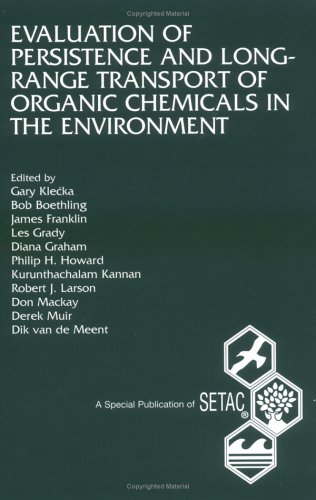Items related to Evaluation of Persistence and Long-Range Transport...
Evaluation of Persistence and Long-Range Transport of Organic Chemicals in the Environment - Hardcover

Synopsis
Persistent organic pollutants (POPs) are bioaccumulative and toxic organic compounds of natural or anthropogenic origin that resist photolytic, chemical, and biological degradation. They have low water solubility and high lipid solubility, resulting in bioaccumulation in fatty tissues of living organisms. POPs may be transported in the environment at low concentrations by movement of fresh and marine waters. Because of their semi-volatility, POPs can also be transported long distances in the atmosphere, resulting in widespread distribution around the earth, including in regions where they were never produced or used. Thus, both humans and ecosystems may be exposed, in many cases for extended periods of time.
In 1998, a SETAC workshop brought together experts from academia, industry, government, and non-governmental organizations to reach consensus on where we are today and what we can accomplish with the current scientific understanding, as well as what should be done in the future as we address this issue. From this dialogue came the final proceedings, which are presented here.
"synopsis" may belong to another edition of this title.
- PublisherSETAC Press
- Publication date2001
- ISBN 10 1880611228
- ISBN 13 9781880611227
- BindingHardcover
- LanguageEnglish
- Number of pages400
- EditorKlecka Gary Michael
Search results for Evaluation of Persistence and Long-Range Transport...
Persistence and Long-Range Transport of Organic Chemicals in the Environment: Guidelines and Criteria for Evaluation and Assessment
Seller: Karl Theis, Torrance, CA, U.S.A.
Hardcover. Condition: New. A BRAND NEW SEALED COPY. Seller Inventory # 030059
Quantity: 1 available
